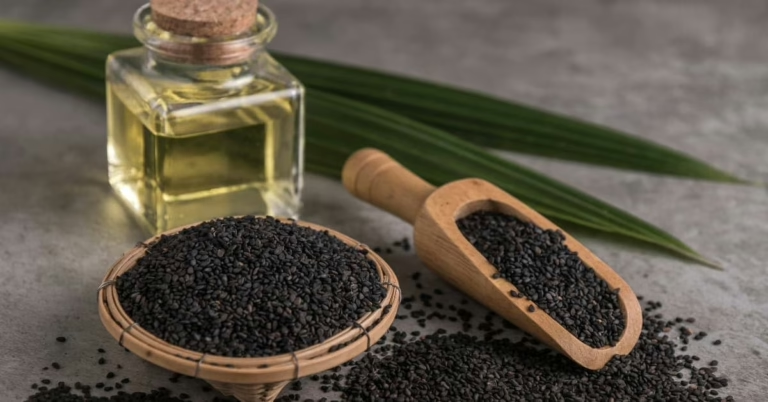Natural Remedies to Combat Postpartum Hair Loss
Pregnancy and childbirth are nothing short of miraculous, but they can also take a toll on your body in unexpected ways. One common issue many new mothers face is postpartum hair loss. This condition, known as postpartum telogen effluvium, can be startling and disheartening as you find clumps of hair falling out. Understanding the causes and how to manage it can make a big difference in your post-pregnancy journey.
Postpartum hair loss is typically triggered by falling estrogen levels and often occurs 6-12 weeks after childbirth. While there are no medical treatments specifically for postpartum hair loss, certain medications and cosmetic treatments can help minimize its effects.
The Life Cycle of Hair Follicles
It might be more accurate to call the condition ‘postpartum hair shedding.’ Hair follicles follow a four-stage life cycle. The anagen (growth) phase lasts 2-4 years, with 85%-90% of hairs in this phase. The catagen (transition) phase, where hair growth slows and follicles shrink, lasts about 10 days. Around 5% of your hair is in this phase at any given time. The telogen (resting) phase follows, lasting about three months with 10%-15% of hair in this stage. Finally, the exogen (shedding) phase, lasting 2-5 months, sees the scalp shedding 50-100 hairs daily.
During pregnancy, hormonal changes increase metabolism, boost blood flow to the skin, and stimulate hair growth, often giving women that ‘pregnancy glow.’ Elevated levels of estrogen and progesterone prevent hair loss, resulting in luscious hair. However, after childbirth, as hormone levels drop, this extra hair begins to shed, leading to noticeable hair loss.
8 Tips to Relieve Postpartum Hair Loss
If you’re experiencing postpartum hair loss, these eight tips can help you manage it:
1. Switch Your Shampoo: Use a volumizing shampoo and avoid those labeled ‘conditioning’ to support hair follicles.
2. Choose a New Conditioner: Opt for conditioners designed for fine hair, avoid intensive conditioners, and apply conditioner only to the ends of your hair.
3. Minimize Styling: Avoid blow-drying, curling, straightening, and even hard brushing to reduce hair shedding.
4. Go Natural: Treat your hair gently by avoiding chemical treatments and tight hairstyles, as your hair is particularly sensitive postpartum.
5. Adopt a Healthy Lifestyle: Regular exercise boosts metabolism and overall cell health, including your hair.
6. Manage Stress: While it’s easier said than done, reducing stress can positively impact your hair health by stabilizing your hormones.
7. Supplement Your Diet: Vitamins A, C, D, E, and Zinc can help reduce hair shedding. Biotin, found in milk, eggs, and bananas, is especially beneficial. Continue taking prenatal vitamins post-childbirth to support your hair.
8. Try Natural Remedies: DIY treatments like egg whites and coconut milk can nourish your hair. Maintaining a nutritious diet is crucial, particularly for new mothers.
How Essential Oils Can Help with Postpartum Hair Loss
Essential oils have been used for centuries for their therapeutic properties, and they can be a natural and effective way to support hair health, particularly for new mothers experiencing postpartum hair loss. Here’s how essential oils can help and some tips on using them effectively. Essential oils offer a gentle, holistic approach to managing hair shedding and promoting healthier hair.
The Benefits of Essential Oils
1. Stimulating Hair Growth: Essential oils like rosemary and peppermint are known for their ability to stimulate blood circulation in the scalp, which can promote hair growth.
2. Nourishing the Scalp: Oils such as lavender and chamomile are excellent for soothing and nourishing the scalp, helping to create a healthy environment for hair growth.
3. Strengthening Hair: Essential oils like cedarwood and clary sage can strengthen hair follicles, reducing breakage and hair loss.
4. Balancing Scalp Oils: Tea tree oil and lemon oil can help balance the scalp’s oil production, preventing excess oiliness or dryness that can affect hair health.
How to Use Essential Oils for Postpartum Hair Loss
1. Scalp Massage: Mix a few drops of essential oil with a carrier oil like coconut, jojoba, or almond oil. Massage this blend into your scalp for 5-10 minutes. This not only delivers the benefits of the essential oils but also stimulates blood flow to the hair follicles.
2. Add to Shampoo or Conditioner: Add a few drops of essential oil to your regular shampoo or conditioner. This can enhance the products’ benefits and provide consistent nourishment to your scalp and hair.
3. DIY Hair Mask: Create a hair mask using essential oils and a carrier oil. Apply it to your hair and scalp, leave it on for 30 minutes to an hour, and then wash it out. This deep conditioning treatment can strengthen and revitalize your hair.
4. Leave-In Treatment: Mix essential oils with water or a light carrier oil and apply it as a leave-in treatment. This method provides ongoing support and protection throughout the day.
Recommended Essential Oils for Postpartum Hair Loss
1. Rosemary Oil: Known for its ability to improve circulation and stimulate hair growth.
2. Lavender Oil: Helps to soothe the scalp and reduce stress, which can impact hair health.
3. Peppermint Oil: Stimulates blood flow to the scalp and promotes hair growth.
4. Tea Tree Oil: Balances scalp oils and has antifungal properties that keep the scalp healthy.
5. Cedarwood Oil: Strengthens hair and promotes a healthy scalp.
When using essential oils, it’s important to:
- Dilute Properly: Always dilute essential oils with a carrier oil to prevent skin irritation.
- Patch Test: Conduct a patch test before applying the oil mixture to your entire scalp to ensure you don’t have an allergic reaction.
- Consult a Professional: If you have any concerns or conditions, consult with a healthcare provider or a professional aromatherapist.
Postpartum hair loss can affect self-esteem, adding to the many changes new mothers face. The emotional burden of this condition is significant and deserves attention. Acts of self-acceptance and bravery, such as sharing personal experiences and raising awareness, are invaluable. Using essential oils can also provide emotional and psychological benefits. Aromatherapy can help reduce stress, improve mood, and promote relaxation, all of which are beneficial for new mothers adjusting to the demands of motherhood. By following these tips and seeking professional guidance, you can manage postpartum hair loss and focus on the joys of motherhood. Remember, you’re not alone, and it’s okay to seek help and support during this time.






